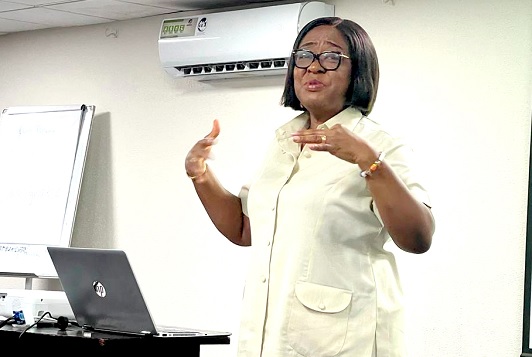
Why Ghana needs an Affirmative Action Law
Gender Equality (GE) and Women Empowerment (WE) are strategies for reducing poverty levels, social injustices among women and men, improving health standards and enhancing the efficiency of public and private sector investments and domestic finance.
Thus, achieving gender equality is regarded as the attainment of human rights and a prerequisite for sustainable development.
Having both men and women involved in decision-making broadens the perspectives, increases creativity and innovation, diversifies the pool of talents and competencies, reduces conflicts, and improves the process of decision-making.
The United Nations (UN) Fourth World Conference on Women in 1995, recognising this key condition for women’s empowerment, which in turn is required for democratic governance, identified as one of the 12 critical areas of concern in its Beijing Platform for Action (BPA).
The BPA calls on state parties to “take measures to ensure women's equal access to and full participation in power structures and decision-making” and also to, “Increase women's capacity to participate in decision-making and leadership”.
The two strategies are proposed to be addressed by “governments, national bodies, the private sector, political parties, trade unions, employers' organisations, research and academic institutions, sub-regional and regional bodies and non-governmental and international organisations.”
Ghana’s goal
Historically, since the attainment of independence in 1957, and in recognition of the role played by women activists during the struggle for independence, 10 women were nominated and appointed to the legislature based on the introduction of the Representation of the People (Women Members) Bill in 1960.
This appointment established a consciousness for gender equality and women’s empowerment.
Also, following the first UN Conference on Women in 1975, Ghana set up the National Council on Women and Development (NCWD) now known as the Department of Gender as the national machinery.
The main task of the national machinery then was to support government-wide efforts in the empowerment of women through income generation, social mobilisation and social development.
Recently, ABANTU for Development, a women’s rights group organised a meeting to interact with officials from the Ministry of Gender, Children and Social Protection (MoGCSP) in Accra, and the Convenor of the Affirmative Action Bill Coalition, Sheila Minkah-Premo, gave the historical background to Affirmative Action in Ghana and the need for the passage of a law to back gender equality in the country where she said there was evidence that having more women in public and private decision-making increased the general level of public sector effectiveness and accountability in a country.
“Women are often dynamic leaders of change, who galvanise women and men to get involved, to claim their rights, and strengthen their communities to be resilient,” she said.
She said “Unfortunately, there are still many barriers to overcome to enhance women’s participation in decision-making.
The low levels of women’s participation in leadership are often attributed primarily to patriarchy or male dominance.”
This is a key aspect of the Ghanaian social system in which the woman’s role and status are relatively recognised to be inferior to those of the man in almost all aspects of social, political and economic life.
Custom, law and even religion have also been used to rationalise and perpetuate these differential roles to the extent that some women themselves seem to have accepted and internalised them.
Other factors include limited knowledge and prioritisation of GE in the leadership or governance architecture, increasing cost of doing politics in the country and reduced advocacy by women’s groups and gender advocates due to limited funding and resources.
Why the need
for the AA BILL
Affirmative Action (AA) is defined as the act of supporting or recommending a cause or course of action to remedy an imbalance.
It recognises historical wrongs and makes room for remedial action to be undertaken to remedy the wrong.
It is a temporary measure intended to produce particular results against identified targets within a certain time frame.
The main purpose of the recent attempt to enact an Affirmative Action Law is to help address aspects of social, economic and educational imbalance in the country in accordance with Article 17(4) of the 1992 Constitution.
It is a Bill to redress areas of social, economic and educational imbalance and it aims at eliminating discrimination and the need for equal opportunity for both men and women.
Enumerating five key points why the AA Bill must be passed into law, Mrs Minkah-Premo said there was a need to address the marginalisation of women in public and economic life in the country, constitutional argument of which Article 17 prohibits discrimination based on gender with an exception in 17(4) which states that - “Nothing in this article shall prevent Parliament from enacting laws that are reasonably necessary to provide for the implementation of policies and programmes aimed at redressing social, economic or educational imbalance in the Ghanaian society.
It is also in compliance with international obligations such as the Convention on the Elimination of all Forms of Discrimination (CEDAW) of 1979 of which Article Seven calls for ensuring that both men and women have equal access to election to public bodies and allows for affirmative action to achieve this the Beijing Declaration and Platform for Action of 1995, the Sustainable Development Goals of 2015, the African Union Agenda 2063, which calls for parity to be achieved by 2063 in its Goal five, among others.
Also, there are lessons from other African countries which have achieved gender equality in governance, especially with regard to the increase in the numbers of women in Parliament by affirmative action laws.
These include countries like Rwanda, South Africa, Kenya, Ethiopia, Guinea Conakry and recently Sierra Leone.
Finally, it makes economic sense to achieve gender equality as research indicates that it makes economic sense to achieve gender equality.
Writer’s email:
